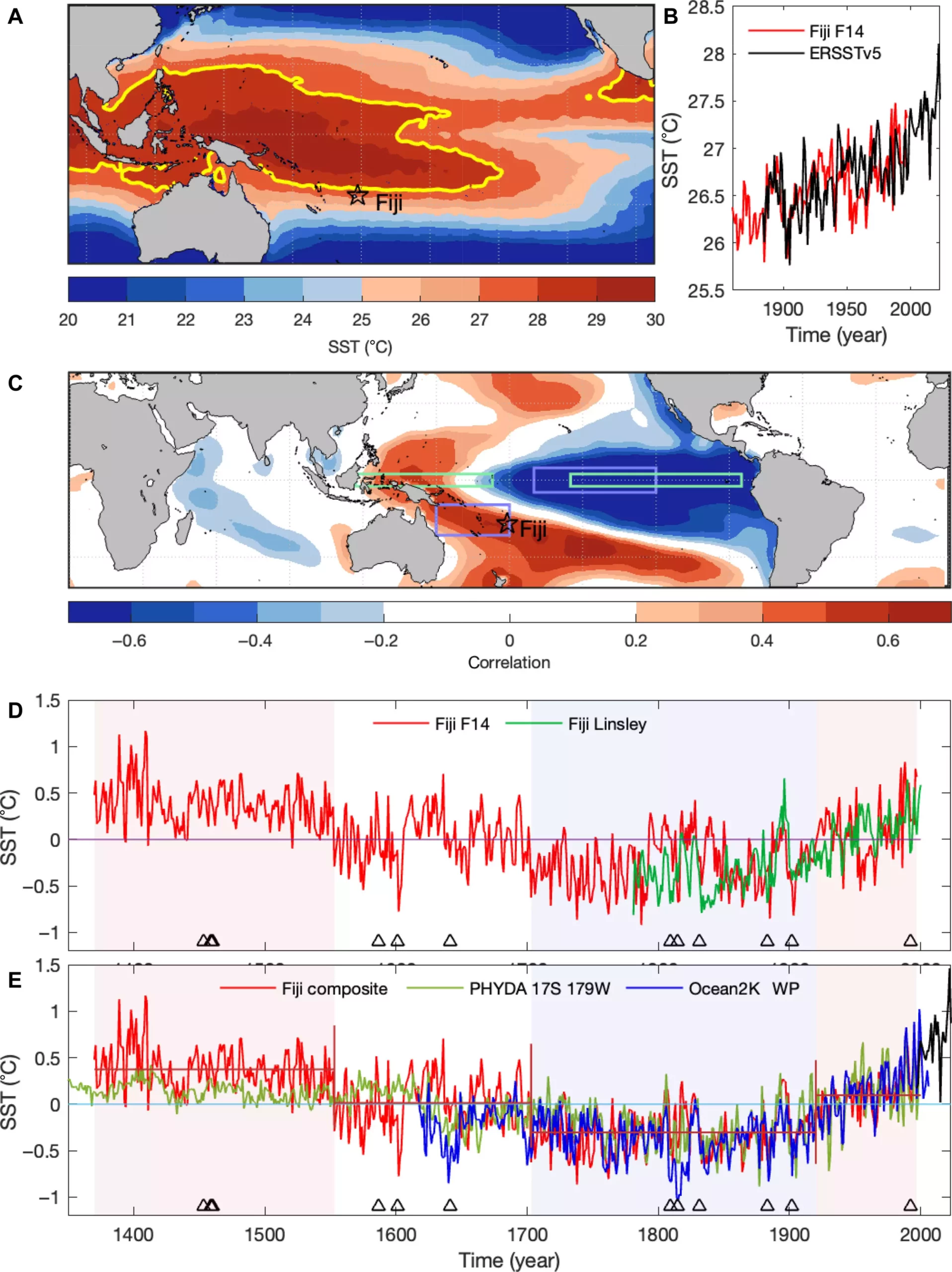An intriguing study published in Science Advances, led by an international team of climate scientists, presents a 627-year-long coral record from Fiji that sheds light on the intricate relationship between ocean temperatures and climate variability across the Pacific Ocean starting from 1370 CE. The research, a collaborative effort involving esteemed scientists, including Dr. Ariaan Purich from Monash University, Professor Matthew England, and Dr. Rishav Goyal from UNSW, emphasizes how the warming ocean, driven by human activity, interacts with the natural variability of the climate. This comprehensive analysis not only challenges previous understandings of ocean conditions but also underscores the urgent need for action against climate change.
The findings indicate that ocean temperatures in the Fiji region underwent significant warming from 1380 to 1553, a phenomenon that mirrors contemporary conditions experienced during the late 20th and early 21st centuries. However, while it may seem that natural patterns of climate variability have allowed for such temperatures in the past, the current warming trend observed since 1920—largely attributed to emissions produced by human activity—marks a critical divergence from historical norms. The data indicates that today’s ocean temperatures are unprecedented, the highest recorded in over six centuries, prompting serious conversations about the implications of such transformations for both the environment and human populations.
The ability of corals to preserve climatic conditions across long periods provides a unique opportunity to analyze historical ocean temperatures. The specific coral dataset employed by the researchers, obtained from a colony of a giant boulder coral known as Diploastrea heliopora, allows for an exceptional reconstruction of sea surface temperature trends over centuries. By employing advanced geochemical analysis of the Sr/Ca ratio in the coral, the scientists managed to extract detailed environmental records. This innovative method opens new doors for understanding the dynamics of our changing climate.
The study also delves into the Interdecadal Pacific Oscillation (IPO), a significant climate pattern that influences regional atmospheric conditions. The research doubled the previous length of IPO reconstructions, enhancing our understanding of its long-term behavior and its interaction with modern-day climate change. The recent findings reveal that the Pacific region has experienced an atypical warming, raising alarms about weather patterns and extreme events that could provoke severe consequences for millions living within the Indo-Pacific area.
The researchers stress the importance of recognizing the effects of ocean temperature fluctuations, as they play a crucial role in determining local ecosystems and communities. Dr. Purich’s assertion that understanding long-term climate variability is vital for predicting future trends encapsulates the study’s core message: the climate change signals evident today are not merely anomalies, but rather part of a longer-term trajectory shaped significantly by human influence.
The urgency for action is starkly highlighted in this study’s implications for future climate scenarios. Broad-scale warming not only threatens marine life but is also poised to alter weather systems drastically. For the vulnerable populations living on Pacific Islands, these changes can exacerbate existing challenges, making it increasingly important to take proactive measures to combat climate change. The findings serve as a clarion call for the global community to commit to limiting the rise in temperatures to 1.5°C through the development of renewable energy sources, transitioning the economy away from fossil fuels, and implementing effective policy measures.
The research illustrates that as we uncover the intricate connections between historical climatic patterns and contemporary changes, the significance of collective action in addressing climate threats becomes ever clearer. By understanding the past, we can make informed decisions that will help safeguard the future of ecosystems and communities at risk. The coral record from Fiji serves as a crucial reminder of the importance of environmental stewardship and the pressing need to confront climate change head-on.

